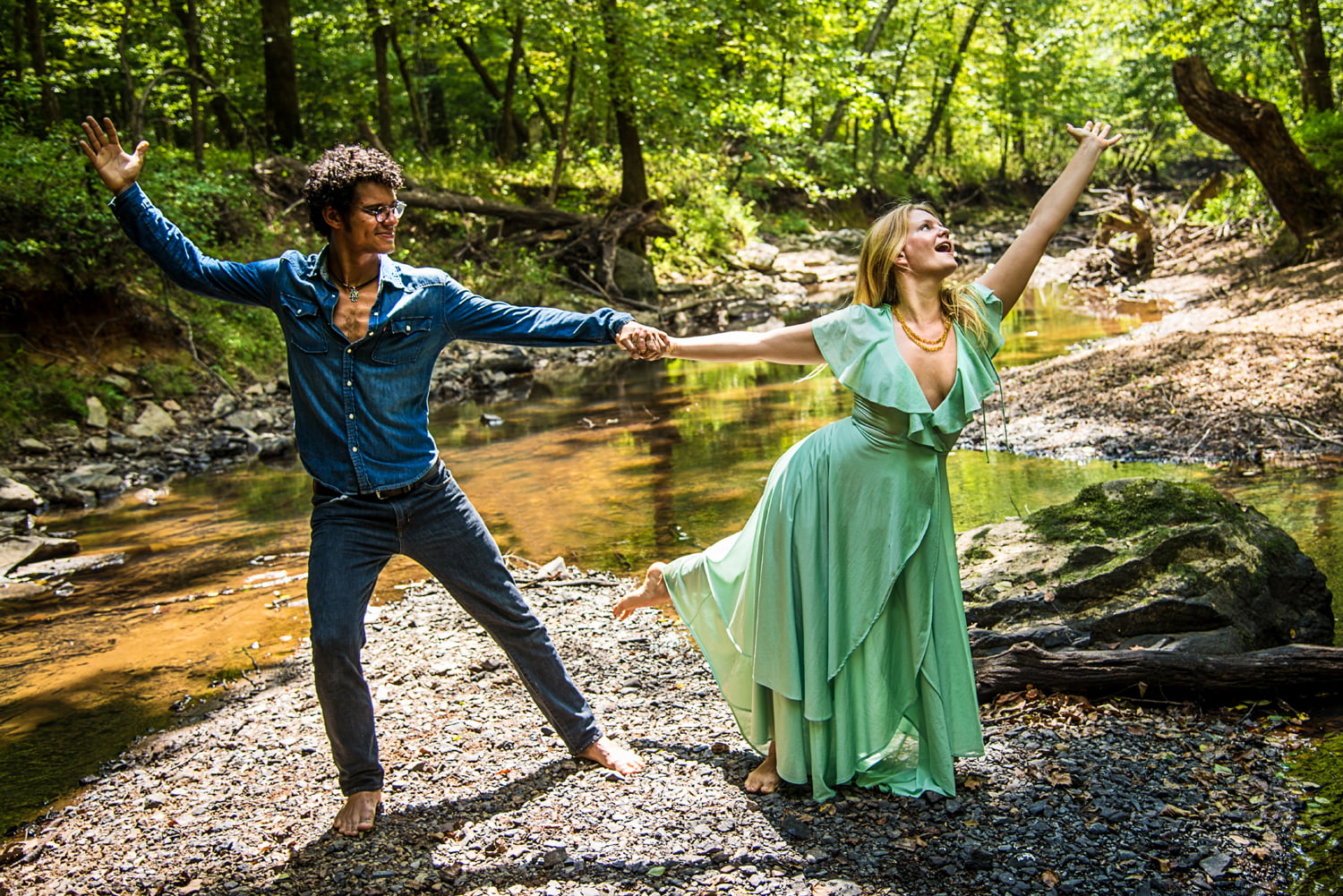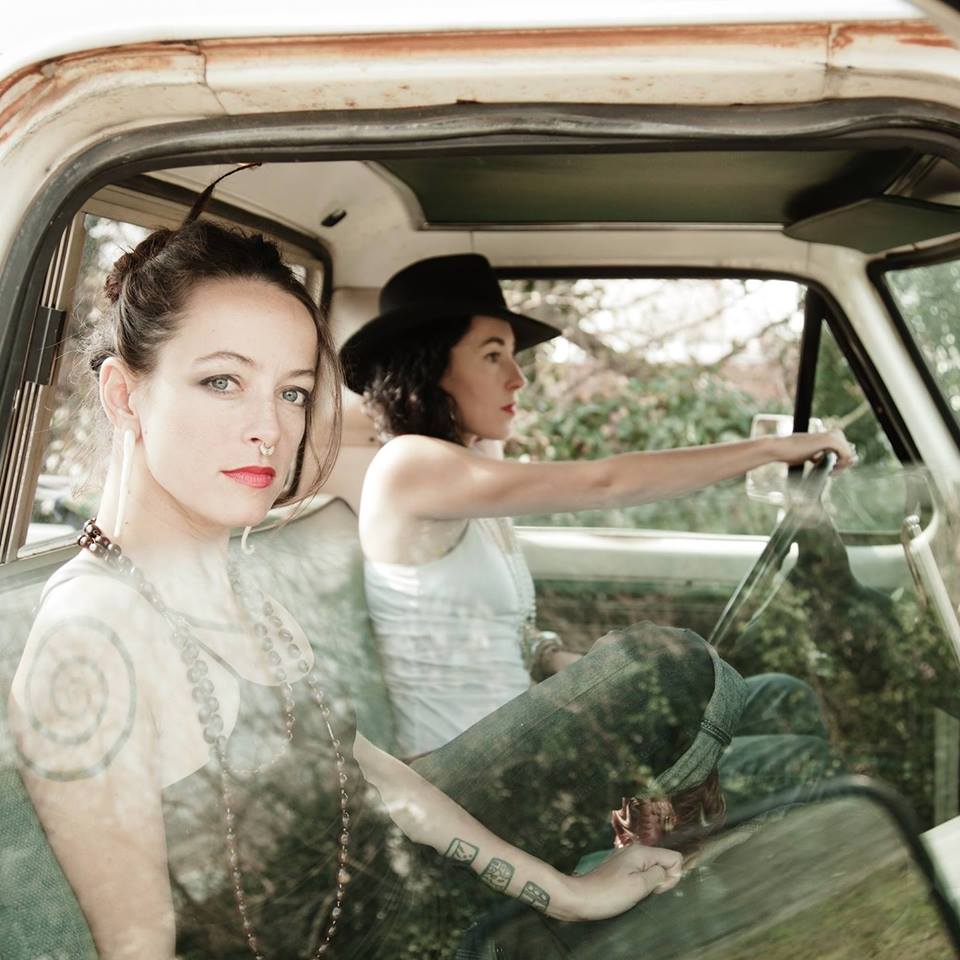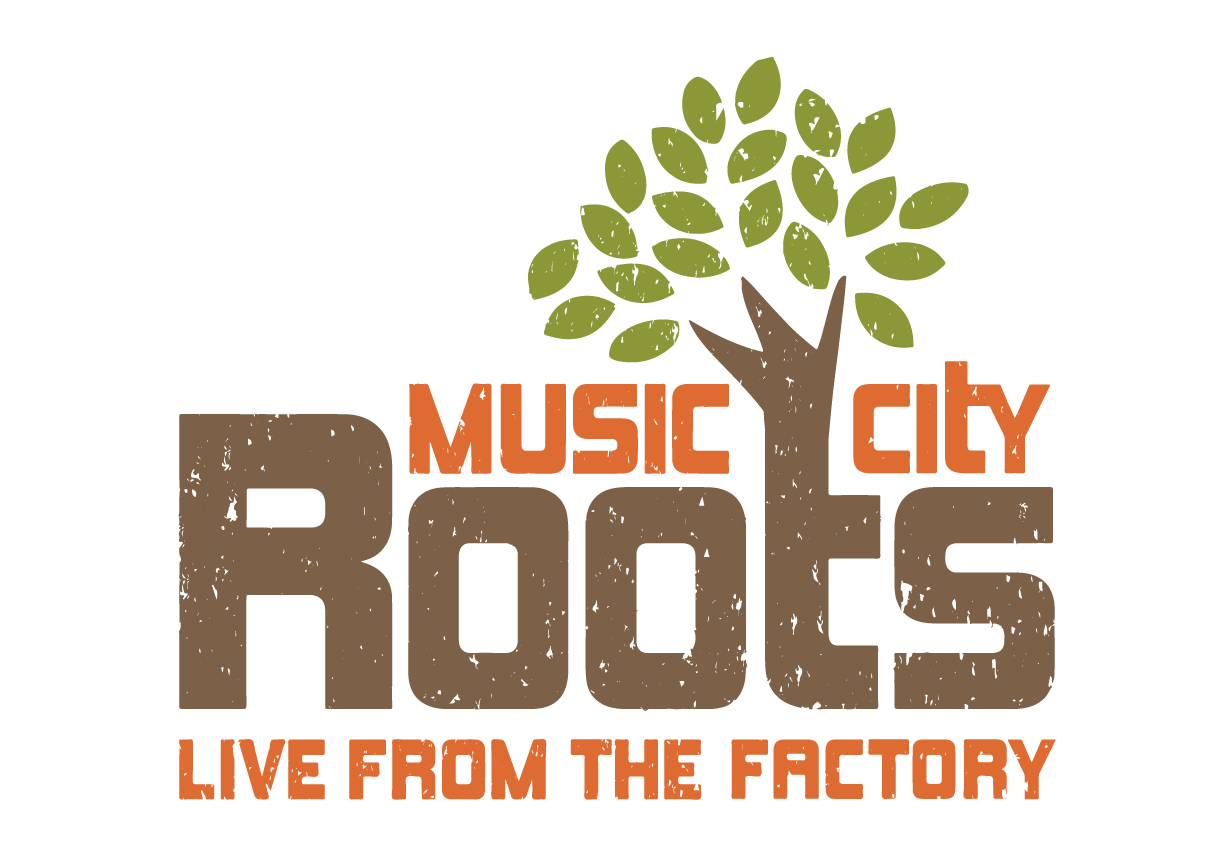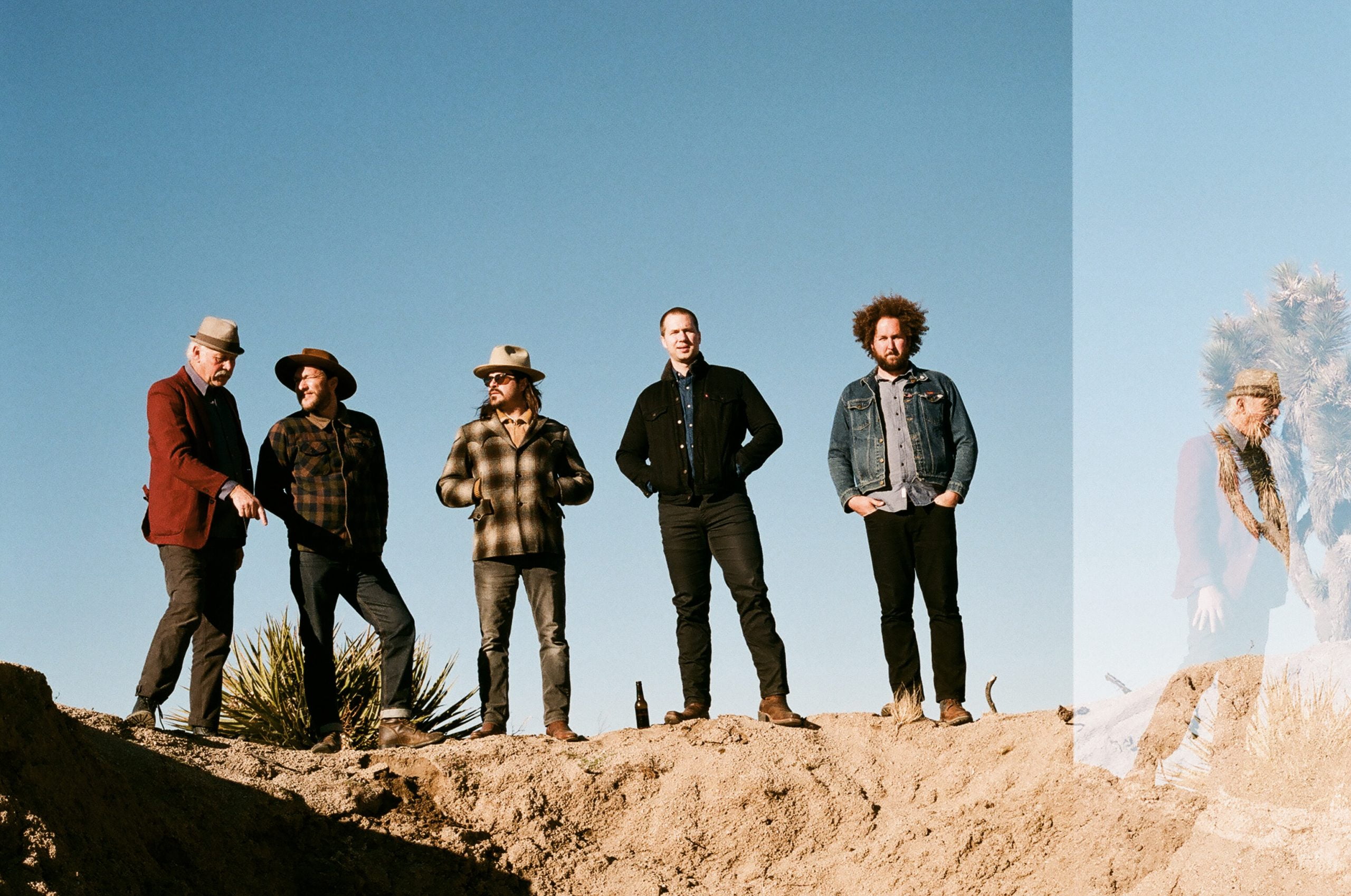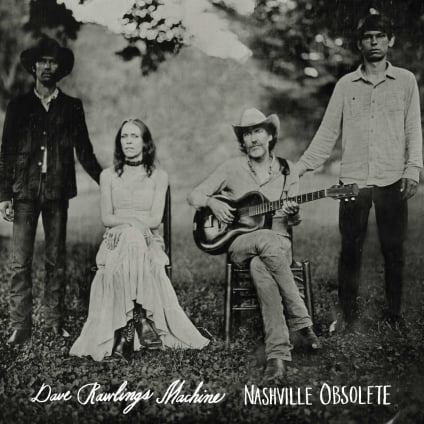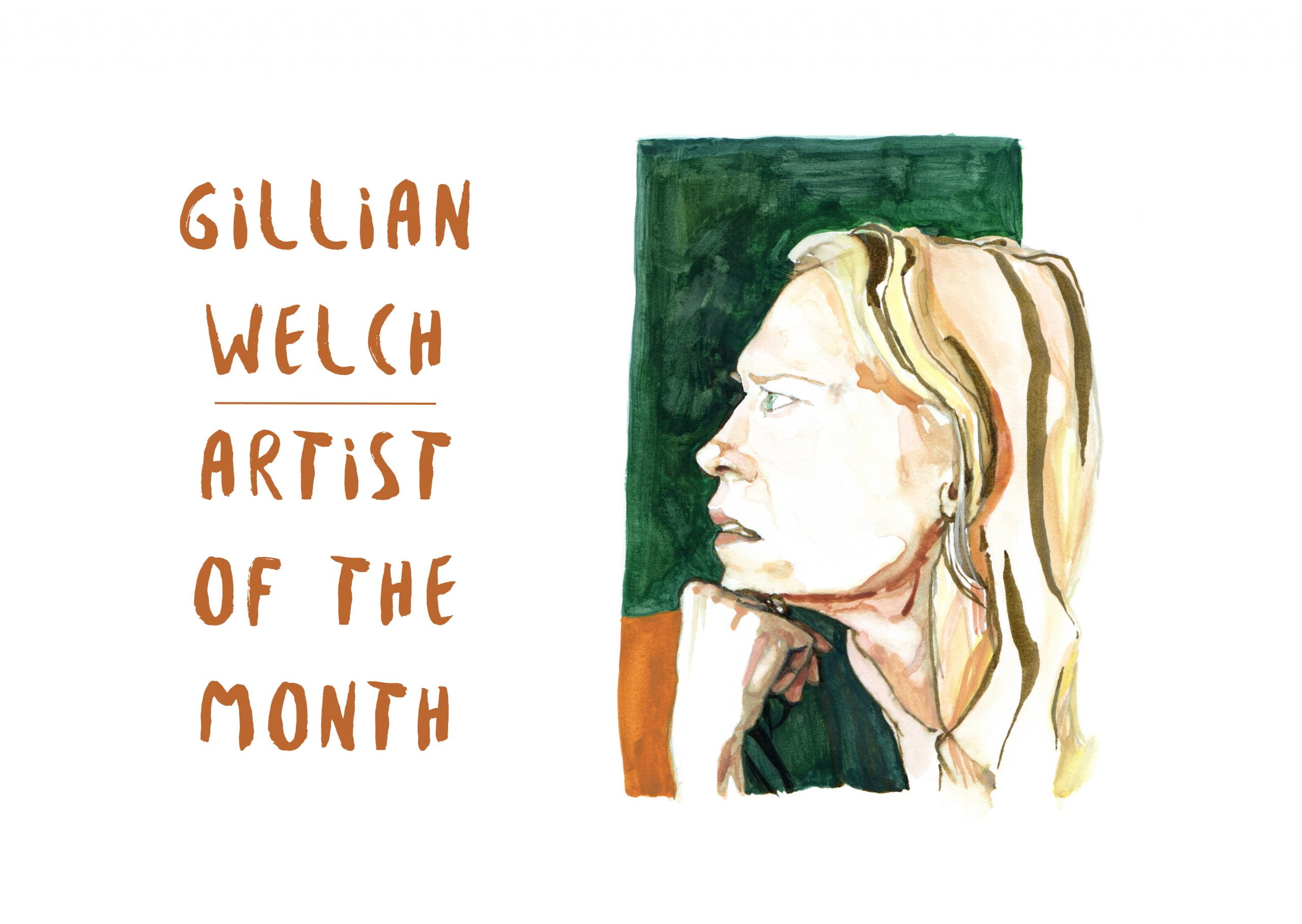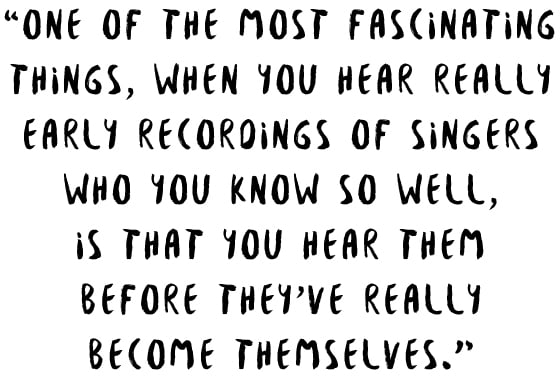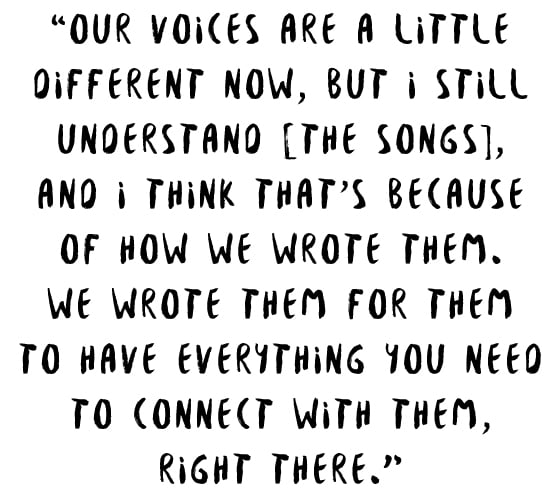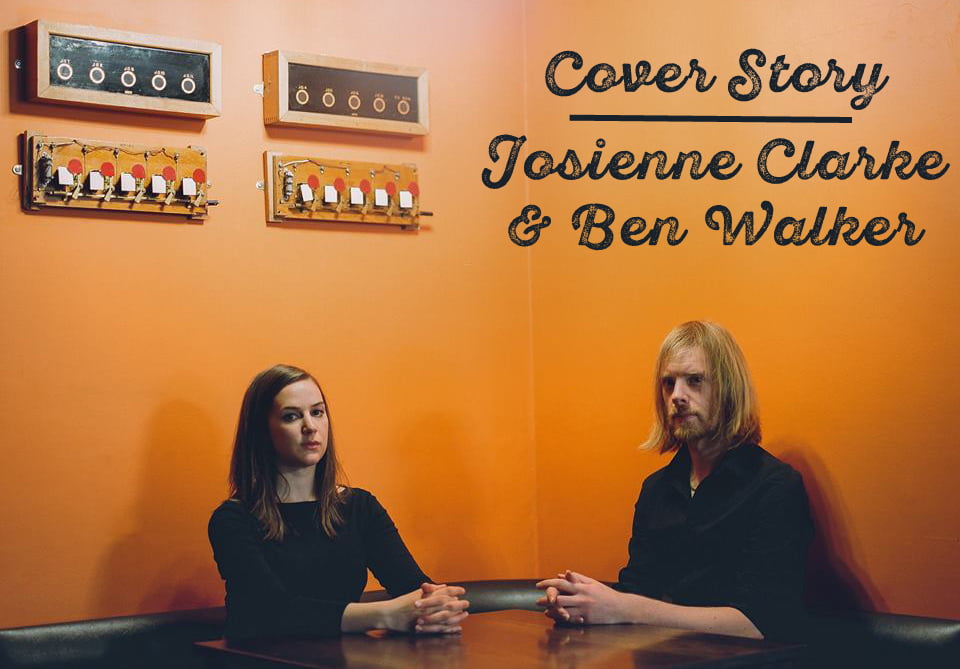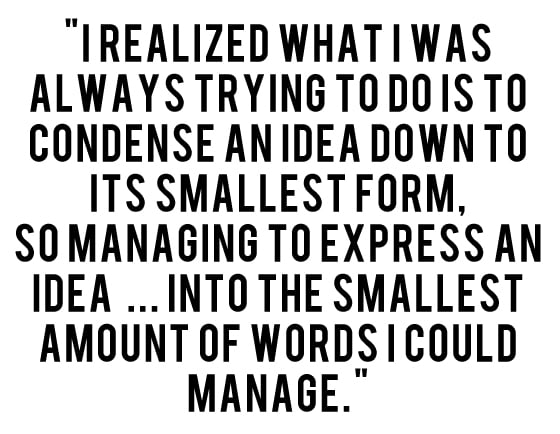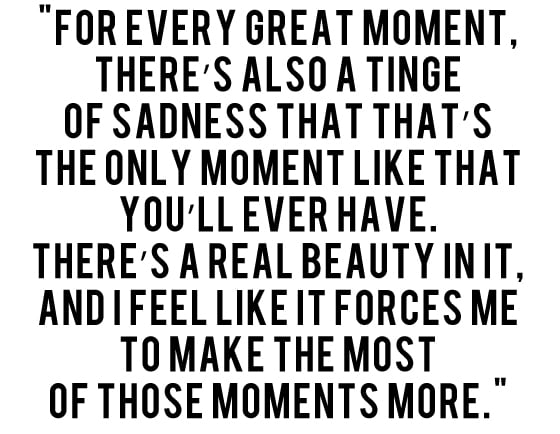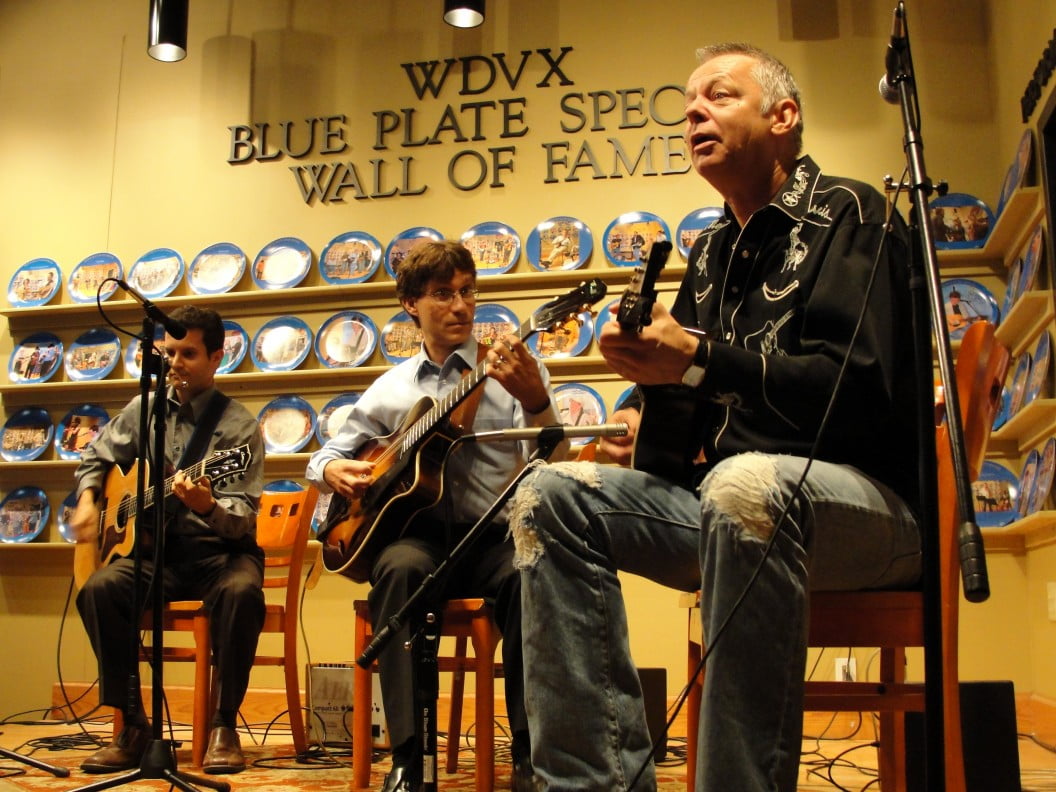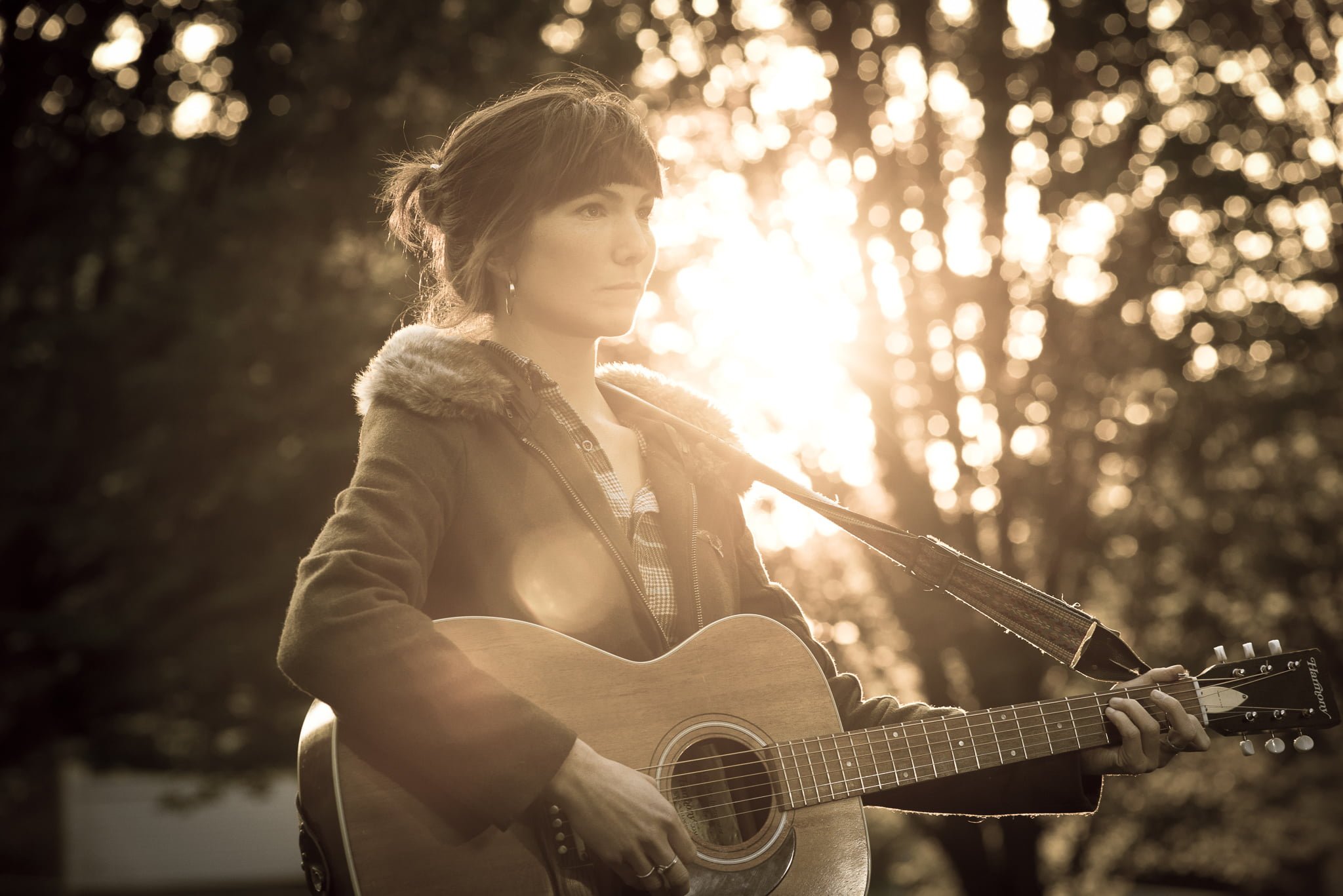The way British singer/songwriter Josienne Clarke describes herself — as the committed harbinger of melancholy — brings to mind the spirit, if not the letter, of Sir John Everett Millais’s haunting painting “Ophelia.” Capturing Shakespeare’s tragic character mere moments before she drowns herself, Millais positions her against a lush landscape so beautiful it contradicts the melancholy writ large across her face. He captures in a frame life’s duality: how the dark exists within the light, how everything contains at least a piece of its opposite. In music, Clarke captures a similar theme, fascinated as she is with the spectrum of melancholy. She and her musical partner, Ben Walker, have a penchant for sad songs, either penning original compositions or interpreting traditional folk tunes that take advantage of the weighted solemnity in her voice. Walker’s arrangements punctuate her writing without adding too much to what she’s saying or leaving her words so bare they freeze. It’s an approach which won them the 2015 BBC Folk Award for Best Duo.
The pair made their Rough Trade Records debut in 2016 with Overnight, which showcases Clarke’s razor-sharp precision for striking upon despondent moments. Paradoxically, they tend to be happier times. On “Something Familiar,” she mourns the loss of an afternoon spent with her love. “For there’s no way of keeping the day we’ve just had,” she sings at the very end, her voice filling the speakers while Walker’s guitar strikes a final note before falling silent and letting her voice linger. Theirs is a realistic perspective more than a strictly melancholic one. If the only certain thing in life is uncertainty, there’s grace in allowing moments to breathe and to be.
If Clarke’s commitment to melancholy seems like an overly serious tone with which to present an existentially plagued perspective to the world, rest assured both she and Walker have a droll sense of humor regarding the whole thing. After all, anyone touting themselves along such lines needs a bit of grit — and a good laugh — to go along with the image. Laughter can exist alongside sadness, much in the way beautiful moments contain their own end.
Your voice sounds so mature and your subject matter is so somber, which belies your age, I suppose. Did this subject matter find you or did your voice find that subject matter?
Josienne Clarke: I don’t really think that melancholy is the exclusive privilege of older people. I’ve always been drawn to the darker songs. Even as a child, my dad used to play me songs like “Man of the World” by Peter Green, which is really, really sad. So I think it started off with that as a nugget for songwriting, and it seemed quite normal to me that song matter should be quite reflective and sad.
How did you two get linked up, originally?
JC: This is Ben’s story.
Ben Walker: I was playing electric guitar in a number of indie bands around London, and a mutual friend was doing some mixing for us. He had an acoustic guitar in the room, and I had a go on that just because I hadn’t played one of those — it was a Martin — in a while. He basically said, "Well, if you play acoustic guitar, what are you doing playing electric guitar in these bands that aren’t going anywhere?" I didn’t really know who played that music, and he introduced me to Josienne, who was at the time playing guitar for herself.
Josienne: I was playing bad guitar for myself, and I felt like it was holding me back, so I definitely had a vacancy for a decent guitarist.
You’ve described your writing style as being quite economical. I’m curious how you two work together as writers, but also how much revision plays into it.
JC: I realized what I was always trying to do is to condense an idea down to its smallest form, so managing to express an idea — and it’s usually something like the pain of existing, some sort of existential despair — into the smallest amount of words I could manage. And that’s usually the point at which I take the song to Ben, when I’ve got a kind of melodic and narrative idea down, and he gets involved in the harmony, which chords should go underneath where, and extra instrumentation.
BW: Sort of trying to get the song to a point where nothing else needs to be added and nothing else needs to be taken away. If you take something off, you notice it’s gone; but if you add something on, it feels like it’s overloaded, so it’s trying to find that balance. You can be as economical with that instrumentation as Josi is with the writing structure and the lyrical content, as well.

It seems like it adds a certain melodic emphasis to make the words shine that much more.
JC: I have a bit of a personal hatred of songs that go beyond five minutes. If you have a seven-minute song, you’re getting the song form incorrect. It stops being a song; it becomes a symphony of words. I feel like, when I manage to get it two-and-a-half, three, three-and-a-half minutes … done. That’s a successful songwriting endeavor.
So we shouldn’t expect any kind of major jam session from you two?
JC: We may get bored with our current set-up.
BW: We may record a jazz odyssey.
JC: We can never say never.
Like a folk opera of some sort?
JC: Oh yeah: ”Fopera.”
Are you familiar with "Texts from Your Existentialist” on Instagram, which plays off the "Texts from Your Ex” phenomenon? There’s a certain kind of humor that arises when you’re dealing with existential subjects, and I thought of your tour’s hashtag #MagicalMiseryTour. How do you bring a bit of light or humor to being the “harbinger of melancholy”?
JC: We’re both a bit sarcastic by nature, and I’ve always tried to keep to the principle of taking the music really seriously but ourselves not so much. So, in a live performance, that kind of conversation between the songs is of a comic nature, you know — not slapstick, but kind of dry and sarcastic. I started doing it originally because it made me feel more comfortable in a performance, but I realized that it kind of worked for the audience, as well. In 45 minutes to an hour of really intense music, they kind of need a little break between those three-minute nuggets of sadness. It balances it out, so it doesn’t feel you’ve been through some sort of trauma.
BW: You have to put yourself in the seat of an audience member, not just from a performer’s point of view, but if you were going to come along and see this: How would you feel sitting through an hour-and-a-half’s worth of music where you couldn’t laugh, you couldn’t smile, you couldn’t feel that anything you were doing? The amount of concentration needed to sustain that … you need a little relief in there.
JC: [Laughs] It also stops us from looking hideously pretentious.
BW: There’s also the thing where, although we do take some elements from classical music, we never do the kind of gig where everyone has to turn up in suits and sit in perfect silence from beginning to end.
JC: Well, that’s what I mean. It’s not a recital.
Turning to the album itself, one of my favorite lines on “Something Familiar” is when you sing, “There’s no way of keeping the day we’ve just had.” It’s like every beautiful thing contains its opposite or its demise. How do you live with that knowledge of everything disintegrating?
JC: I think everyone has to live with it, and I don’t know how people manage to live with it without being able to write songs about it.
I think people know it to an extent, but they don’t tap into that awareness as often.
JC: Yeah, maybe I’m the only one constantly banging on about it. That idea has kind of pervaded all of my songwriting in some sense. I just thought of “Silverline” [off Nothing Can Bring Back the Hour]. There’s a line about “for each pound of joy, there’s an ounce of regret,” and it’s that thing where, for every great moment, there’s also a tinge of sadness that that’s the only moment like that you’ll ever have. There’s a real beauty in it, and I feel like it forces me to make the most of those moments more. That knowledge makes me more inclined to cherish the life that I do have.
BW: Until you realize that all things must pass, there are two ways you can approach it: You can make all things last indefinitely. Yes?
JC: I’m just intrigued that you’re involved in this part of the conversation. [Laughs]
BW: I’m just thinking you can sort of embrace it and say, "Well, let’s just try and make everything last forever," or actually you can say, "No, look, we’re just going to enjoy the moment. We know it’s going to end."
You’re not getting attached to any one moment or any one person; you’re able to appreciate them for what they bring and then let it go.
JC: Yeah, I think that’s what we all have to learn to do, and I’m still learning or I wouldn’t still be writing songs about it.
But we tend to get very attached to things and, in turn, get upset when they’re no longer around for various reasons. I think recognizing moments and people for their fleeting nature is quite beautiful. I’ve really been drawn to your lyricism because it touches on that point more than what I’ve heard in a while.
JC: But I think that plays into the overall concept of the album — the cyclical nature — that everything has an element of change built into it. That’s the acceptance you have to make. It underwrites absolutely everything, everywhere, from the seasons to the moon to the tides to the sun. It’s an inevitable part of existence.

You’re not getting any kind of argument from me on that point. Besides your original songwriting, I know you’ve covered Shirley Collins, Kate Rusby, and Jackson C. Frank, among others. What do you look for in someone else’s music?
JC: We never kind of specified that we were folk musicians. That was applied to us, in a way, and we always liked songs — generally sad ones — but those can come from any genre of music. We have quite a wide interest. Our albums have more than just folk songs on them.
BW: Generally, when we’ve found songs that we’ve decided to cover, you actually hear it and go, "Well the sentiment works, the idea works." You start sparking ideas around and going, "Well, it would be great if we tried it like this." It goes from there, really.
JC: I’ll give you a specific example: Gillian Welch’s “Dark Turn of Mind.” I felt they kind of do it as a straight piece of Americana, but I always felt like I could hear a kind of torch song in there somewhere and I guess wanting to try that to see if I could bring that out of it some way. Obviously, I identify massively with its sentiment, to a point that I feel like I would’ve written it, if I feel like she hadn’t got there first. But we’ll say, on a musical level, I could hear another interpretation in listening to it and that’s why that one, specifically, was more compelling than some of her other songs, perhaps.
BW: We’ve never been ones to do a carbon copy of the original, because it already exists. Why would you do it again? So it’s that sort of thing where you reimagine things, or the classic one for us is to learn it, forget it, and then try and re-remember it.
JC: Yeah, you have to feel you have something extra to bring to it. It’s never going to be the original, but you might be able to add something else that makes it a credible interpretation.
That’s why I loved what you did with “Milk and Honey.” It was really something.
JC: That was weird because I don’t know how I thought of it, but I heard the melody and I thought, "Well, this melody will work with ‘Tis Autumn,’ another standard." I’m not sure I could’ve worked it out, technically. I just knew it was, and then Ben is tasked with doing the technical splicing and putting it together.
Like, "Here’s the idea: Structure it and make it work."
JC: Right. “Can you just make this work? Thanks. I know it will. Can you just do it?”
Going back to this Twitter description you’ve given yourself as the "Harbinger of Melancholy" — what do you do if men stop you on the street and ask you to smile?
JC: I find the phrase “Fuck off” is really … or I’ve got a special face. It’s sort of like “meh.” It happens to me quite a lot. People used to come up after the show and say, “Oh, couldn’t you just do one cheery one to fluff it up a bit?” And, obviously, they didn’t get a very good response to that. I was like, “This is what we do. This is what people come for. We’re not going to do happy tunes. If you don’t like it, don’t come. That’s fine.” But we’re not going to change.
As we’ve discussed, you tend to focus on these moments of joy that contain inevitable kinds of sadness. What brings you both joy? What moments do you look for that register in that way?
JC: I guess the weird thing about it for me is performing. It’s really sad music, but nothing makes me more joyful than singing. It’s the sensation of singing something really sad and completely full of joy, which is kind of a bit dark and sadistic and weird.
BW: I think the performance element of it is the thing that brings us both a lot of joy.
JC: And the process of making the album — when I think of putting that thing with that thing and seeing it form, that’s huge fun. Like trying a thing, taking it back off again, putting something else on. The process for us is incredibly joyful; it’s just the subject matter that’s quite sad.
